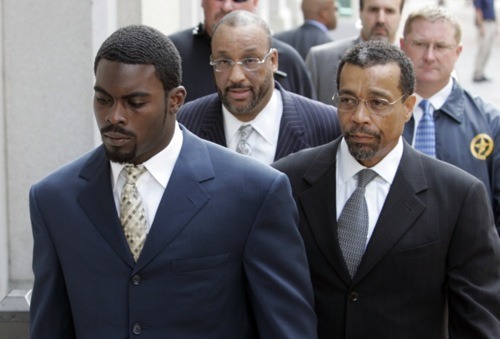
The Eagles have long prided themselves on acquiring morally upstanding players to represent Philadelphia. Even the notable exception of Michael Vick was wrapped in a tremendous flag of righteous leadership, as the Eagles patted themselves on the back for giving a second chance to a man who admittedly made a lot of mistakes.
Yet, in the last two drafts general manager Howie Roseman has pursued honorable, law-abiding leaders even more exclusively. Just last month the Eagles selected a fireman, at least four team captains, a few academic all-conference players, and a national anthem-singing renaissance man. Knowing this trend, it’s laughable to think that so many experts expected the team to take troubled cornerback Jimmy Smith in the first round.
But what’s behind this shift in purpose for the Eagles front office under Roseman? Something about his philosophy has cleared changed the thinking there, and I wonder what the catalyst was. Was the previous standard not high enough? I doubt the Eagles would take another Jack Ikegwuonu anyway. But this new policy goes much further. Not only is the team avoiding players who were in trouble with the law, but they’ve also shied away from almost anyone not considered the paragon of a team leader.
Maybe I’m spending too much time obsessing over something Occam’s Razor would solve with: well, Howie thinks good kids will be better than bad ones. But the shift wasn’t away from delinquents. It was toward choir-boys.
You have to wonder if the Eagles would have even taken the risk on superstar DeSean Jackson, considered a me-first player in college, had Roseman been in charge in 2009. If anything, you’d think the team’s experience with Jackson would teach then to appreciate talent above pretty much all else.
Would Jimmy Smith have become an all-star in Philadelphia? Or would he have flamed out in series of run-ins with the law? We can’t know, and that’s not the point.
The point is that this is where you start to play devil’s advocate about the deeper reasoning behind the policy. It’s easy to support a football player with a captain’s experience, a golden voice, or a fireman’s work ethic. That makes sense on a level that’s easy to understand, appreciate, and defend. But at what opportunity cost? Is there any loss?
The fact that Michael Vick isn’t dodging defenders and tossing touchdowns in another team’s jersey suggests that maybe there is a substantial sacrifice.
Originally published at NBC Philadelphia. Photo from Getty.